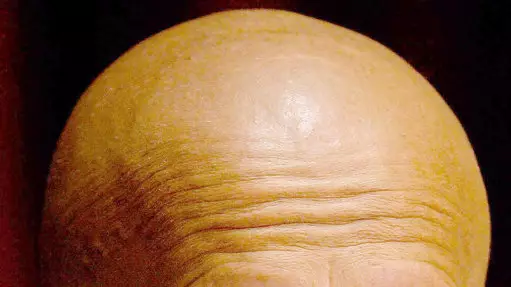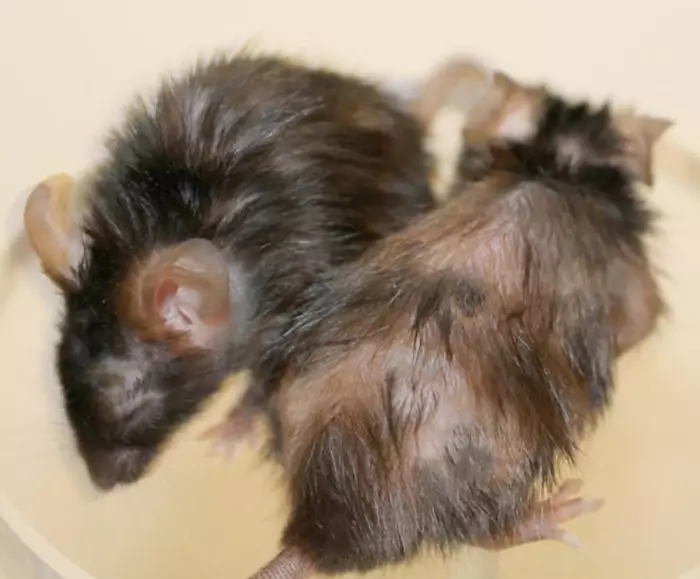
For those of you who are balding, it's a massive pain in the arse. I know this. Despite the fact I'm probably never going to lose my hair, I completely sympathise.
I've got male friends who started losing their hair at 17. It sucks. Especially as I know how much it knocks your confidence.
But LADs, there may very well be a cure. Not only a prevention tool, but something that could actually reverse the balding effect. I shit you not.
Science Alert has reported that researchers from Erasmus University Medical Centre in the Netherlands have developed a new peptide therapy. But what does it do? Well it sounds like the fountain of youth. In testing, it's so far managed to reverse some of the symptoms of ageing - including hair loss and reduced stamina.

The mouse on the left has been treated, while the one on the right has not. Credit: Peter de Keizer
The sciencey bit is that it effectively targets senescent cells. These are the damaged cells that build up as we get older.
Over time, the build up of these cells cause inflammation and other age-related health problems.
This therapy works by eliminating these cells and leaving the healthy ones alone.
The study was originally looking into kidney function before the team noticed improved stamina and the regrowth of hair.
Science Alert said: "On a biological level, the peptide works by blocking the signals between two proteins called FOXO4 and p53, which when they interact are thought to be crucial in the process of cell senescence."
You may be wondering about side effects. Luckily, they've observed that after a year of testing, there's been no obvious side effects.
However, some scientists are questioning what could happen if senescent cells are removed without a replacement.
Peter de Keizer, one of the researchers, said: "FOXO4 is barely expressed in non-senescent cells, so that makes the peptide interesting as the FOXO4-p53 interaction is especially relevant to senescent cells, but not normal cells."
Many mouse-based studies don't end up working very well on humans, but this is a great step in the right direction.